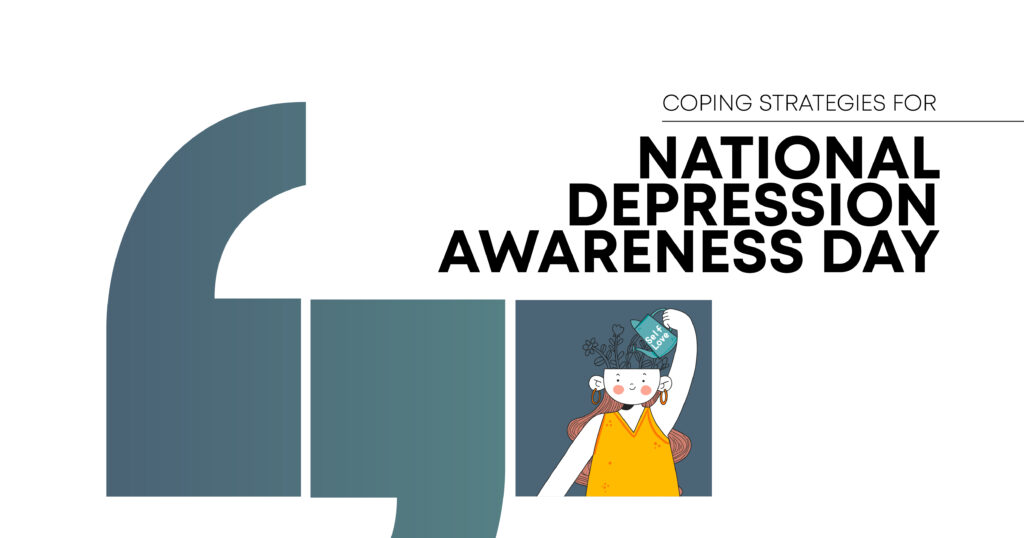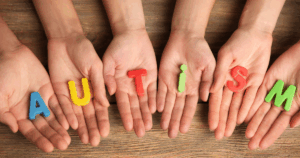National Depression Awareness Day, October 5th, isn’t just some random date you scroll past on your phone. It’s a solid, much-needed reminder that millions of people are silently fighting depression every single day.
Depression doesn’t just mess with your emotions. It seeps into everything. From how you think, to how you sleep (or can’t), to how much you eat (or forget to), and even how you show up in your daily life. So, depression awareness is important, and this day matters. A lot. It’s a chance to say out loud what too many people are still whispering: depression is real! But it’s also a chance to find the right support. In this article, we’ll take a look at the ways to cope with depression and why it’s important to get support.
Importance of National Depression Awareness Day
The truth is, we still don’t talk about depression nearly enough. And when we do, people often confuse it with just being bummed out. But if you’ve lived it, you’ll know very well that it’s not just “a bad day.” It can feel like you’re dragging yourself through life in slow motion while the world keeps spinning at full speed.
This awareness day is about way more than hashtags. It:
- Shines a light on how common depression really is (way more people than you think are dealing with it)
- Helps chip away at the shame around asking for help
- Gets conversations going in families, classrooms, offices, you name it
- Pushes for better access to treatment and mental health services
And most importantly, it’s a reminder to check in with your people. Even the ones who look like they’ve got it all together. Especially them.

Mental Health Center of San Diego
Recognizing Symptoms of Depression
Depression doesn’t always show up like the dramatic scenes in movies where someone’s crying alone in the dark.
Sometimes it’s just forcing yourself to get through the day with a fake smile, then crashing the moment you get home because you’re totally drained. Other times, it’s snapping at people you care about for no good reason or losing interest in hobbies and things you used to love doing, things that used to light you up, just feel empty.
Here’s a simple breakdown of some common signs to watch for:
- Pulling away from friends and family: On a good day, a call from this person makes you feel very excited, but those good days are now few and far between. Now. It feels like too much, like the energy to respond or engage isn’t there, and you’d rather retreat into yourself instead.
- Always feeling tired or oversleeping: Depression can leave your body and brain feeling exhausted. This could be sleeping for hours and waking up with brain fog, and also feeling like a log of wood.
- Eating way more or way less: Your appetite might change a lot; some people eat way more than usual, while others barely feel like eating at all. It’s your brain and emotions messing with your body’s signals.
- Feeling hopeless or worthless: This goes beyond just being sad. Sometimes, it’s deep emotional pain that even feels physical; other times, it’s having thoughts about not wanting to be here anymore, which is serious and important to address.
- Trouble focusing or thinking clearly: That “brain fog” isn’t about laziness or lack of motivation. It’s a cue that your mind is overloaded and struggling to keep up.
Depression isn’t something that usually clears up on its own. A lot of the time, you’ll need help, no matter how little. So reach out. Talk to a friend, family member, or mental health professional. Help is real, and things can absolutely get better.
Effective Coping Strategies for Managing Depression
Managing depression isn’t about quick fixes or pretending you’re fine. But little steps that are done consistently can really add up. Here are some that can make a real difference, even on the hard days.
Building a Support Network
Depression can make you want to cancel plans and hide under a blanket. But ironically, connection is one of the strongest tools. Even when talking feels like too much, just having people around who care can lighten the load. Sometimes it’s venting to a friend, texting silly memes, or just sharing quiet moments, that human connection can go a long way.
| Type of Support | Why It Helps |
| Texting or calling a friend | Reminds you that you’re not invisible or alone |
| Joining a support group | You’ll hear “me too,” which is oddly healing |
| Leaning on family | They may not always get it, but love and structure help |
Support doesn’t always mean deep conversations or advice. Sometimes, just watching a show together or sitting in silence is enough to feel less alone and more grounded.
Practicing Mindfulness and Meditation
You don’t have to become a monk or sit on a mountain. Mindfulness practices just mean being present, noticing what’s happening right now without judging it. It helps you get out of your head and gives your brain a much-needed break.
Meditation is one of the best ways to build that mindfulness muscle. It helps with stress management. Even just a few minutes a day can help calm racing thoughts, lead to anxiety relief, and make overwhelming feelings feel a little more manageable.
You don’t need fancy apps or a perfectly quiet space. Just find a comfortable spot, close your eyes, and focus on your breath. When your mind wanders (and it will), gently bring it back without frustration. Over time, this practice can help you feel more grounded and less caught up in negative loops.
Try this grounding trick when your thoughts are spinning:
- 5 things you can see
- 4 things you can touch
- 3 things you can hear
- 2 things you can smell
- 1 thing you can taste
It takes about 30 seconds and works like a mental reset button to pull you back into the moment.
Engaging in Physical Activity
You do not have to run marathons or go to spin class. But a little bit of movement does wonders. Exercise causes your body to release endorphins, and they’re natural mood boosters.
| Activity | Energy Level | Mental Boost |
| Walking outside | Low | Fresh air and movement means instant mood upgrade |
| Stretching/Yoga | Low to medium | Calms your nervous system, relieves tension |
| Dancing to music | Medium | Shakes off the heaviness, energizes you |
| Cleaning or tidying up | Low to Medium | Clears physics clutter, gives a sense of control |
You don’t need a gym registration. You can simply go wherever you are. A five-minute stretch is better than nothing.
Establishing a Healthy Routine
Depression can alter your routines drastically; suddenly, it’s 3 p.m. and you haven’t brushed your teeth or eaten anything. A simple routine brings back a little structure and helps your brain know what to expect.
You don’t need a military-grade schedule. Just choose one or two habits to stick to, like:
- Wake up at roughly the same time every day (even on weekends)
- Drink a glass of water before your morning coffee
- Write down one thing you want to do today, even if it’s “take a shower.”
Here’s a super basic starter routine:
| Time of Day | Mini Habit |
| Morning | Drink water, open the blinds |
| Midday | Step outside or stretch |
| Evening | Write down 3 thoughts from the day |
These tiny rituals create little anchors in your day. And when life feels messy, anchors help.
Mental Health Center of San Diego
Manage Your Depression at Mental Health Center of San Diego
Yes, self-care matters, and it can do a lot. But sometimes bubble baths and breathing exercises just don’t cut it. When that happens, then it’s your cue to call in the professionals.
At Mental Health Center of San Diego, we offer support that’s judgment-free, compassionate, and tailored to you. Depression might tell you that there’s no way out, but that’s a lie. Help is real. Healing is possible, and we’re here to help you through it. Contact the Mental Health Center of San Diego for effective ways to cope with depression today.

FAQs
What are effective mental health awareness strategies to combat depression?
Start conversations. Normalize therapy. Call out stigma when you see it. Share your story if you’re ready. The more we talk, the more healing we make room for.
How can depression support groups contribute to emotional well-being?
In depression support groups, you’re around people who actually understand what you’re going through. No masks, no pretending. Just support. This helps you heal in a safe environment.
What treatment options are available for managing depression and anxiety relief?
There are many treatment options to pick from. Therapy, medication, lifestyle changes, support groups, mindfulness practice, it’s about finding the mix that works for you. Everyone’s formula is different.
How can mindfulness practices enhance emotional well-being and stress management?
These practices help your emotional well-being by slowing the mental chaos and keeping you grounded. They give your brain a quiet moment to be still and relax.
Mental Health Center of San Diego
Where can I find reliable mental health resources for depression support and treatment options?
To find reliable mental health resources, start with Mental Health Center of San Diego, NAMI, or your local mental health organizations. There’s more help out there than you think.









